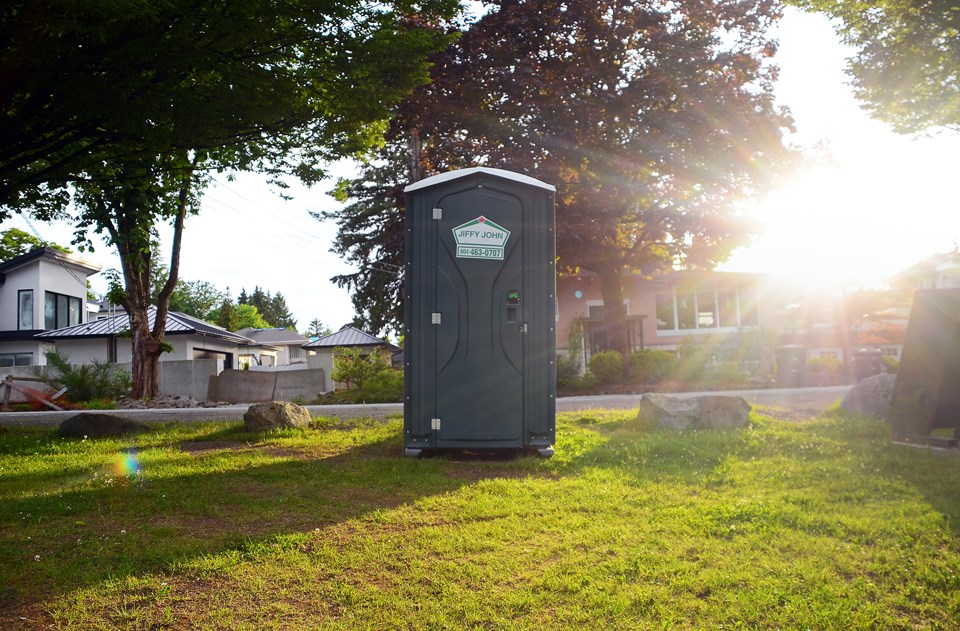Sometime on the evening of Nov. 20, 2019, a 37-year-old man stepped into a Jiffy John at the edge of a park in a quiet, affluent Burnaby neighbourhood.
Inside the green plastic structure he was alone.
There he could take out his pipe, drop in a pebble of crack cocaine and fend off for a few minutes the craving banging at his mind and body.
Maybe he’d gone there before, but this time would be different.
This time his lifeless, slumped-over body would be pulled from the portable toilet by a coroner.
Someone would have to track down his family and tell them what happened.
Someone would have to punch the details into a database: Unintentional illicit drug toxicity (fentanyl, cocaine).
I arrived at the scene, Charles Rummel Park, between Lougheed Highway and Burnaby Lake Park, just in time to get some shots of the porta-potty and the last few police officers leaving the scene.
Burnaby RCMP told me later that the death of the man, whose body had been found by a postal worker looking to use the outdoor toilet, was deemed non-suspicious.
I requested a copy of the coroner’s report and finally got it last week, but I was pretty sure I already knew what it would say.
It would outline, in detail, a nightmare I used to play over and over in my head a few years ago.
Back then, a man I love, a man who was about the same age, would disappear for days at a time.
I didn’t know where to, but I knew it would be a place where no one would be able to find him or judge him or save him.
I knew it would be days, weeks, months maybe before anyone found him if things went wrong.
If fentanyl had been around then, there’s a good chance his life would have ended the same way as the man found at Charles Rummel Park.
It didn’t, and I never got that call – but so many have.
In May alone, 170 people died of suspected illicit drug toxicity, according the BC Coroners Service, an average of more than five people a day.
That’s the highest number of such deaths ever recorded in a month in B.C.
I don’t know if it was by design that I got a copy of the coroner’s report on the same day that I got a government press release from the Ministry of Mental Health and Addictions about an app called Lifeguard, but I’m OK with being used as a mouthpiece in this case.
The app was developed by Jeff Hardy, CEO of the company, shortly after a friend of his died from an opioid overdose while they were both in recovery, according to the ministry press release.
The user activates the app before they take their dose. After 50 seconds, the app sounds an alarm. If the user doesn’t hit a button to stop the alarm, indicating they’re OK, the alarm grows louder. After 75 seconds a text-to-voice call will go straight to 911, alerting emergency medical dispatchers to a potential overdose.
Since its launch in May, it’s been used more than 1,000 times, according to the ministry press release.
It’s not the answer to everything, not even close, but for a certain kind of user – like my guy, maybe like the guy at Charles Rummel Park – this could buy time enough to find the right program, the right mental health supports, the thing to live for.
While there’s breath in your body, there’s hope.
Maybe this app could keep that breath in your body just long enough.
Cornelia Naylor is a reporter with the Burnaby NOW.



